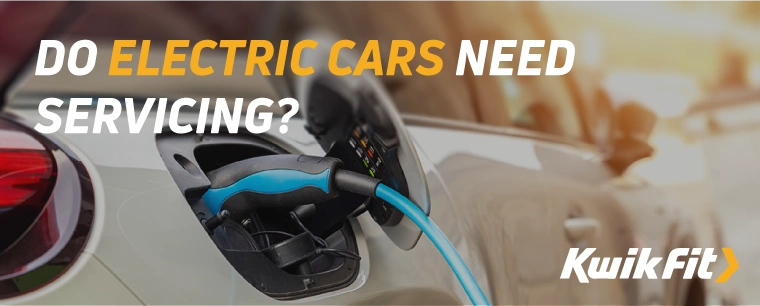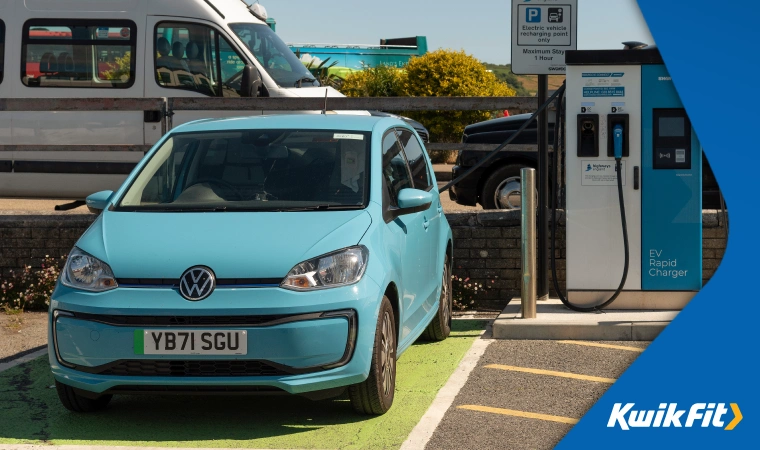Do Electric Cars Need Servicing?
Jack Dreyer | Thursday 27th June 2024 12:30pm

Even though the shift to electric vehicles over the last few years has been dramatic, it’s still early days in the grand scheme of things. As such, there’s a lot of information that drivers aren’t aware about. What’s more, electric cars these days look like sleek, advanced pieces of technology and come with incentives like not having to pay road tax and not needing an MOT for three years – so it’s quite natural to assume that they may not need servicing either.
But, unfortunately, this is an instance of an assumption being actually too good to be true. Electric vehicles do indeed need servicing – but depending on the type of electric vehicle, they’ll usually need different types of servicing. Let’s look at why servicing is an essential for EVs and what components need regular services.
Why do EVs need servicing?
Despite the fact that the ‘engine’ in an EV is an electric motor rather than a combustion engine, a lot of the other components in the vehicle are quite similar (or exactly the same) as combustion engine counterpart models. This is because, at their core, the only thing that’s fundamentally different about an EV is the power source; things like suspension, brakes, steering mechanisms, and lights work in exactly the same way.
Of course, there are certain advances and differences that you’d expect to find on an EV (electric vehicle tyres, for example, tend to have much higher load ratings) – but they fundamentally operate in the same way.
Does an electric motor need servicing?
Unless something is clearly wrong with the motor, a core benefit of electric motors over combustion engines is that they basically don’t ever need servicing. Until quite recently, electric motors would wear over time and need to be replaced because they worked by maintaining contact between two electromagnets.
These contacts were called “brushes” because they kept electrical contact by physically brushing against a charged cylinder – but modern electric motors are “brushless”, meaning there aren’t components that make physical connections in order to provide power. This ‘brushless’ solution means that there’s nothing that wears down within the motor!
Crucially, the lack of contact also means there’s no need for engine oil to lubricate the physical connections. Which significantly cuts the costs associated with oil replacement in large-volume engines (such as those in 4x4s and some SUVs).
And if that weren’t enough, the way a brushless electric motor works means there’s no need for a gearbox to convert the power into torque – so you also don’t need to stay on top of gearbox oil changes.

So, what does need servicing?
So, while the motor itself won’t need to be, there are things that need to be regularly checked, tweaked, and serviced – but what?
The main thing is the vehicle’s power source, the battery bank. They don’t need a great deal of “servicing” per se, but they do need to be regularly checked to ensure all the connections are still working properly. And, while there’s no need for engine or gearbox oil, there are still mechanical components in an EV system (like CV joints and differentials) that need to be checked and lubricated.
Because of the weight of the electric battery systems, EVs are significantly heavier than their combustion engine counterparts. However, despite what you may assume, this doesn’t actually put much strain on the brakes themselves because EVs make use of a technology called “regenerative braking” – which, in short, means that the motor polarity is reversed in order to slow the vehicle down rather than speed it up.
This is so effective that the brakes are essentially emergency backups – but this also means that they have a tendency to rust and seize because they’re not in constant use.
The other main components that need frequent checking are the tyres and suspension. Because EVs are so heavy, their tyres and suspension tend to be quite robust, but the way an EV motor works can increase tyre wear through quick acceleration.
Hybrid vehicles need different servicing schedules
Don’t forget that hybrid vehicles still contain combustion engines. Even if those engines are smaller than usual, they still need much the same servicing at the same intervals as a traditional combustion engine vehicle would.
Need an EV service?
We have expert technicians in centres all around the country who are highly trained and fully qualified to work on electric vehicles. If you need an EV service, get your car in good hands at your local Kwik Fit centre. In the meantime, contact us with any questions and be sure to keep up with the latest EV motoring news on our blog.
Any facts, figures and prices shown in our blog articles are correct at time of publication.
Featured Articles
Is it Illegal to Drive With One Headlight?
Saturday 19th July 2025
Wondering if it’s illegal to drive with one headlight? Learn about the safety risks and penalties of illegal blown bulbs and why you should fix them promptly.
Air Con in EVs & Hybrids: Experts Answer Your Questions
Monday 30th June 2025
Does air con drain EV batteries? Can you use the air con while charging an electric car? Find out the answers to these questions & more from Kwik Fit’s experts.
Why Is Your Car Making a Noise? Fixes & Tips
Friday 13th June 2025
When your car starts making unexpected noises, it can certainly be quite disconcerting; it may be nothing to worry about, but here’s what you need to know.









